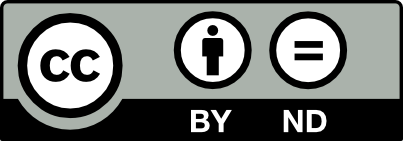Empreu aquest identificador per citar o enllaçar aquest ítem:
http://hdl.handle.net/10609/129106
| Títol: | Navigational acts and discourse: fostering learner agency in computer-assisted language learning |
| Autoria: | Knight, Janine Barbera, Elena |
| Altres: | Universitat Oberta de Catalunya (UOC) |
| Citació: | Knight, J. & Barberà, E. (2018). Navigational acts and discourse: Fostering learner agency in computer-assisted language learning. Electronic Journal of e-Learning, 16(1), 67-76. |
| Resum: | Fostering learner agency is a primary goal of Integrative Computer Assisted Language Learning, a type of CALL (Warschauer, 1996) that encompasses networked learning and multimedia, including hypermedia. Although navigation has been a focus of attention in some more established CALL scenarios such as Intelligent Computer Assisted Language learning (ICALL) systems in second language acquisition (SLA) research, much less focus has been on more emerging CALL scenarios such as augmented reality, amongst others. Therefore, if learner agency is to be fostered, identifying how it manifests is important. This study focuses on ?directional agency (Knight, Barberà and Appel, 2017) which is agency exercised in relation to navigational acts during language learning tasks. Using our own case study data as a starting point (where learners carry out navigation as part of the tasks), the paper draws attention to the somatic acts of navigation while using spoken language as part of the multimodal experiences learners can face. A specific literature review was carried out on other current and emerging CALL scenarios that were considered as cases in order to survey the presence of intentional navigational acts and talk, explore and understand it as a phenomenon in the field and to refine directional agency as a construct. Results suggest that directional agency is present across other CALL scenarios and task types; directional agency can be shared across learners and technological features; there are multiple forms of navigation including embodied navigation and whole or partial human body navigation that can occurr in the same task. Navigational acts can accompany learner-learner talk and they can also form part of learner computer talk. Learners and computers can act as semiotic initiators and responders (Coffin and Donohue, 2014), resembling sequential turn-taking of talk so that both learners and digital technologies can be understood as potential actors in the task discourse. |
| Paraules clau: | agència d'aprenents aprenentatge d'idiomes assistit per ordinador (CALL) aprenentatge d'idiomes basat en tasques xerrades actes de navegació |
| Tipus de document: | info:eu-repo/semantics/article |
| Versió del document: | info:eu-repo/semantics/publishedVersion |
| Data de publicació: | 1-feb-2018 |
| Llicència de publicació: | http://creativecommons.org/licenses/by-nd/3.0/es/  |
| Apareix a les col·leccions: | Articles Articles cientÍfics |
Arxius per aquest ítem:
| Arxiu | Descripció | Mida | Format | |
|---|---|---|---|---|
| barbera-ejel-2018-navigational.pdf | 123,75 kB | Adobe PDF |  Veure/Obrir |
Comparteix:
 Google Scholar
Google Scholar
 Microsoft Academic
Microsoft Academic
Aquest ítem està subjecte a una llicència de Creative Commons Llicència Creative Commons


